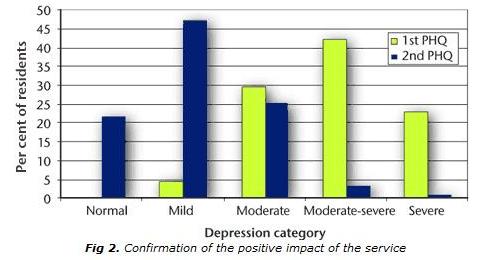SADly, this trial won't prove anything
Gloomy winter days beget a gloomy mood in many people. But the Meteorological Office has an answer.
It is piloting a service called Brighter Outlook, which undertakes to warn sufferers of Seasonal Affective Disorder (SAD) by text, email or phone 48 hours in advance whenever a period of gloomy weather seems likely.
Then they can get out light boxes, which produce a light intense enough to banish the symptoms, or take other steps listed in a booklet of healthy living routines. Both light boxes and booklets are provided free to those who volunteer for the pilot service.
It’s a good idea, but badly let down by the experimental design. As things stand, the pilots are not going to produce evidence likely to convince anybody of the virtues of the advance warnings. That’s a pity, because it means that the money spent on the pilots could easily be wasted.
SAD is a recognised condition, and those who suffer it typically report depression, less interest in doing things, lack of energy, poor sleep, loss of interest in sex, and changes in appetite. Studies have shown that light boxes can be effective: for example, an RCT carried out in Canada over three successive winters in four centres found that a 10,000-lux light box was an effective as an anti-depressant, and with fewer side-effects.
So the Met Office may be on to a good thing by warning vulnerable people in advance. But it seems unlikely we shall ever know.
The first pilot scheme in the winter of 2008-09 was carried out in Cornwall and the Isles of Scilly. This winter, a second pilot is being carried out in the same area, and a third in Bracknell. There is a website which summarises progress so far and reports the results of the first pilot.
This involved 87 people and the results were obtained by assessing the volunteers before, during, and after the pilot. “The results clearly showed a significant improvement in depressive symptoms” says the Met Office, summarised in the bar chart below.

This compares the severity of depression suffered by the volunteers before the pilot began (yellow) and after it ended (blue). It shows that before the pilot, the majority of participants’ responses ( 65.5 per cent) fell within the moderate-severe to severe depression range. Post-trial, only a small minority were within these categories and the majority (68.5 per cent) were classified as normal or having only mild depression.
That's encouraging but no more than a first step. This year a new pilot for the South West has been running since early December, covering 200 volunteers. Kevin Simpson, a chartered clinical psychologist from Outlook South West, a psychological therapy company that is a partner in the scheme, said: “We are very excited about this pilot. We encounter many people for whom the weather over the winter months is a serious issue. This pilot combines innovative emerging science developed by the Met Office with evidence-based practice that we are confident will deliver measurable health benefits to the people of Cornwall”.
I assume that Mr Simpson is referring to the evidence backing his own practice because these pilots will certainly not produce high-quality evidence. There is no suggestion of controls, or double-blinding, which can be implemented in trials of this sort.
You could randomise some volunteers to be given a low-power light, and others the full-power version, as the Canadian trial did. Or you can add a second group who are given an anti-depressant as well as a low-power light, also followed in the Canadian trial. Or you could randomise the volunteers to be issued with the warnings at different times, to see if the length of the advance warning makes any difference.
There is a whole list of possible problems with what the Met Office and its partners are doing. First, people tend to enter studies when they are going through a bad patch, and natural recovery is mistaken for benefit from the treatment - known as regression-to-the-mean.
Second, just being studied tends to make people better - the “Hawthorne Effect”. Finally, any treatment tends to produce benefit just because people expect it to - the placebo effect. Amazingly, all these difficulties are overcome in one simple act: having a randomly allocated control group. But the Met Office confirmed to Straight Statistics that the pilots will not be placebo-controlled trials.
This is supposed to be an era of evidence-based medicine. But evidence collected in the way the Met Office intends will not be worth much.



